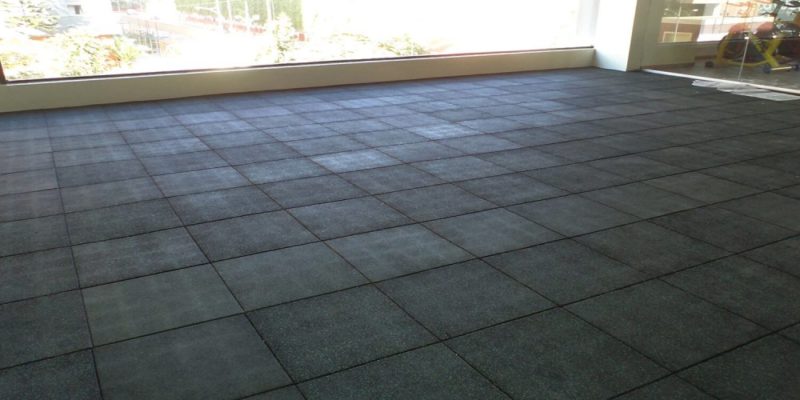If you are considering whether rubber flooring is right for your home, this blog is for you. Like other floors, rubber flooring also has its benefits and drawbacks. It has great acoustics features, can withstand heavy foot traffic, and requires minimal maintenance. However, rubber flooring will cost you more, but it is worth the investment.
In this guide, we are going to talk about the advantages and disadvantages of rubber flooring. So, continue reading.
Where Should You Consider Installing Rubber Flooring?
As rubber flooring has incredible safety and durability features, it is most commonly used in three sectors—fitness, education, and healthcare. These spaces choose rubber floors as they can withstand heavier foot traffic.
When to Use Rubber Sheet Vs. Rubber Tile
Choosing between the rubber tile and sheet depends on the application and aesthetics. Generally speaking, rubber sheet flooring is most commonly seen in healthcare units, whereas more rubber tile flooring is in the education sector. Rubber sheets are ideal for large, open spaces as they possess fewer seams.
Benefits of Rubber Flooring
Rubber flooring offers plenty of advantages; here is the breakdown:
- Durability
Whether it’s a tile or sheet, rubber floors can withstand higher foot traffic over long periods of time. Furthermore, these floors are highly resistant to indention not only from foot traffic but also from heavy rolling wheels and hospital beds.
- Acoustics
Unlike other flooring materials, rubber is a bit softer, making it quieter. These sound-absorbing features are beneficial in large spaces where there may be an empty echoic sound.
- Comfort
One of the biggest benefits of choosing rubber flooring is the comfort level it offers. It is very comfortable to walk on. Moreover, rubber floors are also slip-resistant, making them safer for kids and aged people.
- Self-Migrating Wax
It is one of the unique features of rubber flooring. The material has built-in waxes that allow the grime and dirt to release from the floor. It is just similar to your skin produces oil. This will help reduce maintenance costs.
Drawbacks of Rubber Flooring
Rubber flooring also possesses several drawbacks, such as;
- Installation Issues
Regarding installation, rubber flooring is slightly less forgiving than Luxury Vinyl Tile (LVT). You’ll want experienced installers to lay these floors.
Many people think that rubber floors cannot go well in areas where there is existing slab moisture. The use of adhesive has more to do with moisture tolerance rather than the material. However, it is completely wrong. No matter what the floor is, the subfloors must be prepped properly, and the correct adhesive must be used to tolerate the moisture.
- Costly
You may find rubber floors to be a bit expensive initially, but they are worth the investment. This is because you may not need to spend money on these floors for longer. They can last for longer periods with proper care and maintenance.
All in all, rubber flooring is an ideal option, especially for higher-traffic areas and large spaces. Its durability and uniqueness make these floors outstanding among other flooring materials.














Comments